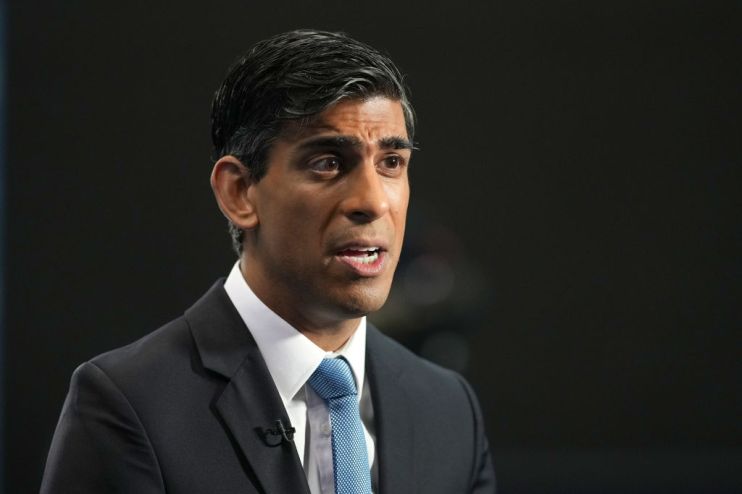Sunak’s quietly simplified tax policy could unshackle our economy – or strangle it

Tax Day hardly sounds like the kind of day we want to mark on the calendar. It is a relatively new practice, when the government dumps an array of tax consultations, reforms and policy proposals on the Treasury’s website, all in one go. Unsurprisingly, they mostly happen without fanfare. But they do offer us helpful clues.
The most recent one, at the end of last month, was a busy one.
While the Autumn Budget was about how much tax we all pay, the majority of the documents published in November’s deluge were more concerned with how it gets assessed and collected. One could be forgiven for dismissing this largely administration-focussed set of texts as little more than tinkering. But doing so would be to ignore the sheer scale and the potentially far reaching impact it will have.
Sunak clearly wants to get more bang for his buck from the existing tax regime, so simplifying processes, closing down opportunities for abuse and tackling non-compliance across the tax system is an obvious priority.
In R&D tax relief, for example, there is a long-standing issue that the UK gives away significant benefit to taxpayers without driving enough UK-focused innovation. British companies claimed tax relief on £47.5bn of R&D expenditure in 2019, but the ONS estimates they only carried out £25.9bn worth of privately financed R&D in this country. This is partly due to being able to claim for innovation taking place overseas but largely because the regime rewards some activities that aren’t really R&D.
Under the latest proposals firms will need to show that innovation is taking place in, and contributing to, the UK economy if they want relief.
There was a call for evidence on how HMRC can modernise how it collects debts from businesses who haven’t paid their taxes. Ecommerce has made it far easier for firms to do business in the UK, without any physical assets here. The new plans recognise this transformed landscape; and will likely look to ensure the small minority of business taxpayers who hold off paying their tax for as long as they can are brought into the fold and engage with HMRC from the beginning.
In a similar vein, a consultation on the much-debated online sales tax was trailed for the new year, as the Treasury looks for new ways to extract some blood from the ecommerce stone. Couple this with the long promised business rates reform and the much called for levelling of the playing field between online and the high street might be in sight.
There is still a strategy-shaped hole at the centre of tax policy. How HMRC administers tax within the current fiscal framework is really important, but the big decisions will always be taken at the political level.
There is real potential for tax reform to be a trigger for the sustainability agenda. The government will undoubtedly need to use tax to encourage businesses and individuals along the path to net zero. Improvements in areas like R&D relief, the super-deduction and the patent box are an opportunity for it to use fiscal carrots and sticks to drive progress.
Tax day is also a chance for Number 11 to reflect on the balance in our system. On one hand, tax revenue can be invested back into achieving growth, as the Chancellor looked to highlight in his last Budget. But tax relief can unshackle businesses and encourage them to channel their resources into activities that benefit both them and the economy. This is all the most important when Britain’s international tax competitiveness has taken a few hits in recent years.
Whether or not you believe that balance is right, it’s clear that the government wants better returns from the tax it takes, and the relief it gives.